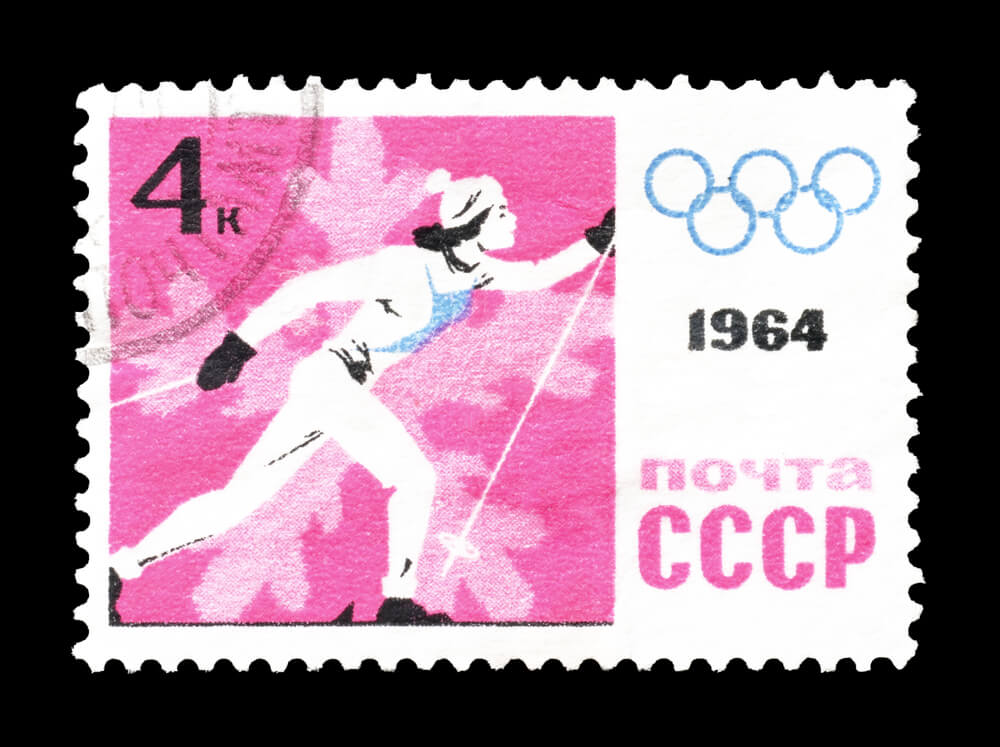How in the USSR they fought for a healthy lifestyle and why it did not work
'27.08.2022'
Source: Lenta.ru report
Everyone remembers the bright posters from the times of the USSR, dedicated to a healthy lifestyle - exercise, hygiene, diet ... However, despite its aesthetic value, the promotion of healthy lifestyles in the USSR was not so effective. At what moment and why it worked the other way around - the correspondent figured out "Tapes.ru»Mikhail Karpov.

Health and life
In 1965, a cartoon appeared on Soviet screens that told the story of the life of one person. Here dad and mom pick him up from the hospital. Here he grows, runs, does physical education with his parents. He has excellent health (which appears in the cartoon as a separate person). Having matured, the Soviet citizen goes to bring down the taiga, to the construction site, then to the institute and the factory. And everywhere his good health helps him - to work, study and just live.
However, soon a test awaits him - drunks-colleagues who offer to wash the position and diploma. And off we go. A young man drinks, smokes, eats junk food without stopping, as a result of which he gets fat, loses his former strength, and his health is withering. Until the 40 years, both of them manage to crawl, and then - alas.
This cartoon, “Your Health”, suddenly wakes up in your head the long-forgotten “dogmas” that remained somewhere deep in the subcortex of the brain: “you planted your stomach - now you’ll only eat semolina”, “you’ll play in the towns - you will live longer”.
Much of this seems wild enough now, but that was precisely the propaganda of a healthy lifestyle from the late USSR, which grew out of the struggle for hygiene of the 20's and the education in the 30's of a “new Soviet man”, a muscular hero.
Then, in 70-80's, the ordinary hard worker really regularly tempered, did exercises, went skiing - everything was prescribed by TV, the media and all kinds of brochures. But often I alternated all these “right” things with weekly binges. “Father regularly drank two weeks from morning to evening, literally brought himself to a transparent state, and then suddenly stopped, and from Monday, from early morning, went out into the yard and started running, crouching and wiping himself with snow. This went on for two weeks, too, and then the cycle started anew, ”recalls a woman named Olga who spent her Soviet childhood somewhere in a small village between Omsk and Novosibirsk.
In the same way, peppy peasants and their companions, running in the morning on a fresh track in the forest in tracksuits and hats with tassels, could easily lay in the evening behind the collar, and with no less enthusiasm. To understand how it happened, you should start over.
Hygiene Above All
Since the Bolshevik ideology implied the construction of communism (which, in fact, for ideologists was a euphemism for the phrase "paradise on Earth"), so man also relied on a special, new one. First of all, healthy, physically developed, to live and work here and now, not hoping for an afterlife.
The famous teacher of the 20's Victor Soroka-Rosinsky wrote: “Training, physical and moral, implies the following: 1) rejection of this, existing and 2) preparation for the future, for the due and ideal”. Here, of course, he talked about the physical and spiritual development of a particular personality, but he described very well all the years of the existence of the USSR. As they joked in the Land of Soviets, “Gogol’s creativity was inherent in threefoldness: with one foot he stood in the dark past, the other in the bright future, and between his legs he had a terrible reality.”
However, one cannot but pay tribute to the enlightening work of the young Soviet state. With the help of active campaigning - through visual materials, propagandists, social programs - it really began to instill in the population the basics of a healthy lifestyle, if not discussed at that time, then at least a banal concept of hygiene, which inhabitants were practically absent.
On the subject: Sour bread, canned food and blue chicken: what actually fed people in the USSR
If you look at the posters of those years, they do not reproach or praise anyone - they only inform and encourage. Everything is strictly and on business. “Cleanliness, sunlight and fresh air will preserve the health of the child,” says one of them, aimed at preventing tuberculosis. "Wash your hands". "Do not spit on the floor." "Contact the antenatal clinic." "Do not drink boiled water - it can be a source of cholera."
The People’s Commissar for Health formed in 1918 was responsible for solving these problems, the pride of young Soviet Russia. The world's first national agency centrally addressed the complex health problems of the country's population. It was at that time that disease prevention was paramount. Since there was simply no money for their treatment.
Of course, Soviet statistics are an unreliable thing, however, it is difficult to argue that in the first decades the Soviet state actually conducted an effective propaganda campaign. Child mortality has decreased significantly, and life expectancy has almost doubled in a short period. And simple rules to wash hands before eating, boil water and so on were actually built into a cult and in this form have survived to this day.
For the motherland, for the sake of the motherland
However, the introduction of basic hygiene was the only indisputable victory of the Soviet healthcare system. Yes, there was a physical culture movement actively promoted by the state in the country (it was especially actively taken up in the postwar years), but it was not aimed at an individual healthy lifestyle in the form in which it is now understood. It was intended to form a cage of sports personnel created for setting records in world competitions.
The circles, sections, the same TRP program (“Ready for Labor and Defense”) were in fact competitive, focused on fulfilling standards and getting a certain badge. The very name of the TRP reflected the essence of the system - a healthy athletic person was needed not in order to lead a long and happy life, but in order to be useful to society, and more precisely - to the Soviet state itself.
This is also indicated by most of the famous Soviet posters. On one - a burly guy raises the bar. “To new victories!” Says the slogan. “All world records should be ours”, “Athletes! Fight for new achievements in sports! ”,“ Above the banner of Soviet sport! ”
Separately, the need for morning and workout was advocated, but if the first one was understood in its own way, the second was reduced to an easy warm-up and as a whole did not change anything, becoming another ritual performed because it was necessary.
All this did not eliminate the most important problem with which Soviet propaganda could not do anything at all: with a very high level of drunkenness. The abundance of anti-alcohol posters and the constant struggle, if not for sobriety, then at least for the "culture of drinking", did not produce any special results. At the same time, dumbbells, expanders and hula hoops were in almost every house, but nobody forgot about “general strengthening gymnastics”. “Two weeks - healthy lifestyle, two weeks - binge.”
You can cite the story of Vladimir Vysotsky, who composed the same song about "restorative gymnastics." According to him, it was written for a theatrical performance, in which the actors Papanov, Derzhavin and Tkachuk performed the roles of three sailors, on the eve of drinking heavily and suffering from a hangover.
Hearing that “Morning Gymnastics” was broadcast on the radio, according to Vysotsky, “they felt ashamed - and they decided not to hang out, but to do gymnastics in order to cheer up - and three striped features (Papanov, Derzhavin and Tkachuk) running around in vests stage and make all kinds of movements for this song. Which I recommend to all men. ”
“I did a lot of sports when I was younger - I just did it - boxing, acrobatics and many kinds of sports ... Then, when I became an actor, I started doing sports for the stage - because we have to do all kinds of acrobatic exercises numbers: we have a synthetic theater, ”Vysotsky admitted. As you know, being a strong man, he had serious problems with alcohol and tobacco, and at the end of his life he became addicted to drugs.
On the subject: The last first lady of the USSR: little whims and big things Raisa Gorbacheva
It's not my business
The problem of obesity was not acute in the USSR. Including because a significant part of its history, the country experienced both simple food problems and real hunger. Easy fullness was rather considered an envy, and an impressive belly was perceived as a person either occupying a relatively high post and having access to inaccessible other goods, or working in a warehouse or in a store.
In turn, the word “diet” itself was understood not as “everyday diet”, but as a specific set of products suitable for certain diseases. Numbered diet tables were developed by Professor Pevzner, one of the founders of dietetics and gastroenterology in the USSR.
Interestingly, judging by the CIA report from 8 on January 1983, Americans and Soviet citizens at that time were using 3520 and 3280 calories, respectively, and at the same time, as the agency testified, both of them overeat. Although the citizens of the USSR, noted in American intelligence, eat healthier food, keep themselves in shape, as they consume less meat, milk and butter.
As the reader from the CIS guesses, the point here was not at all the consciousness of the Soviet citizen, but that normal meat, butter and dairy products were not so easy to get, but fatty food, with the possible exception of whitewash and pasties, practically did not have. Semi-finished products could be obtained by standing a huge queue in some kind of cooking at a restaurant or cafe, and not everyone was enough.
It is clear that these factors, coupled with the psychology that “in blockaded Leningrad would have shot you for discarded bread!”, Could not help but create a society that is greedy for high-calorie junk food that wants to consume it in huge quantities. In addition, after the fall of the USSR, one interesting thing was revealed: former Soviet citizens did not associate diseases that have a direct connection with unhealthy habits, with how they live.
Sociologist Margaret Christine Snead from the University of Alabama writes about this in her 2000 work. In her opinion, an interesting phenomenon is observed: former Soviet citizens have no responsibility for their health, since there is no particular understanding of what it depends on. On the other hand, they believe that if something is wrong with their health, they just need to go to the state polyclinic, where the state is obliged to take care of them. As noted in the work, one of the studies showed that "health for Russians is not a value, but a functional characteristic (for example, such as" the ability to work ")".
This, says Snid, is also confirmed by the study, according to which former Soviet citizens who wanted to return to the previous system (the USSR of the pre-Gorbachev era) drank significantly more, smoked and led a much more passive lifestyle than conditional "liberals".
“It is clear that the Soviet government did not promote individuality or individual initiative in matters of the citizen’s own health, introducing a collectivist ideology in society,” writes Snid. “People agreed or disagreed with this doctrine, they still encountered it in everyday life and should have shown at least superficial agreement with it.”
In addition, she claims that while the type of “Soviet man” will be reproduced (and as can be seen from numerous modern sociological studies, he is doing it successfully now), it is difficult to expect from most Russians that they will look at their health as a zone before all their responsibility (and not just the doctor or the state) after it was finally undermined by themselves.







